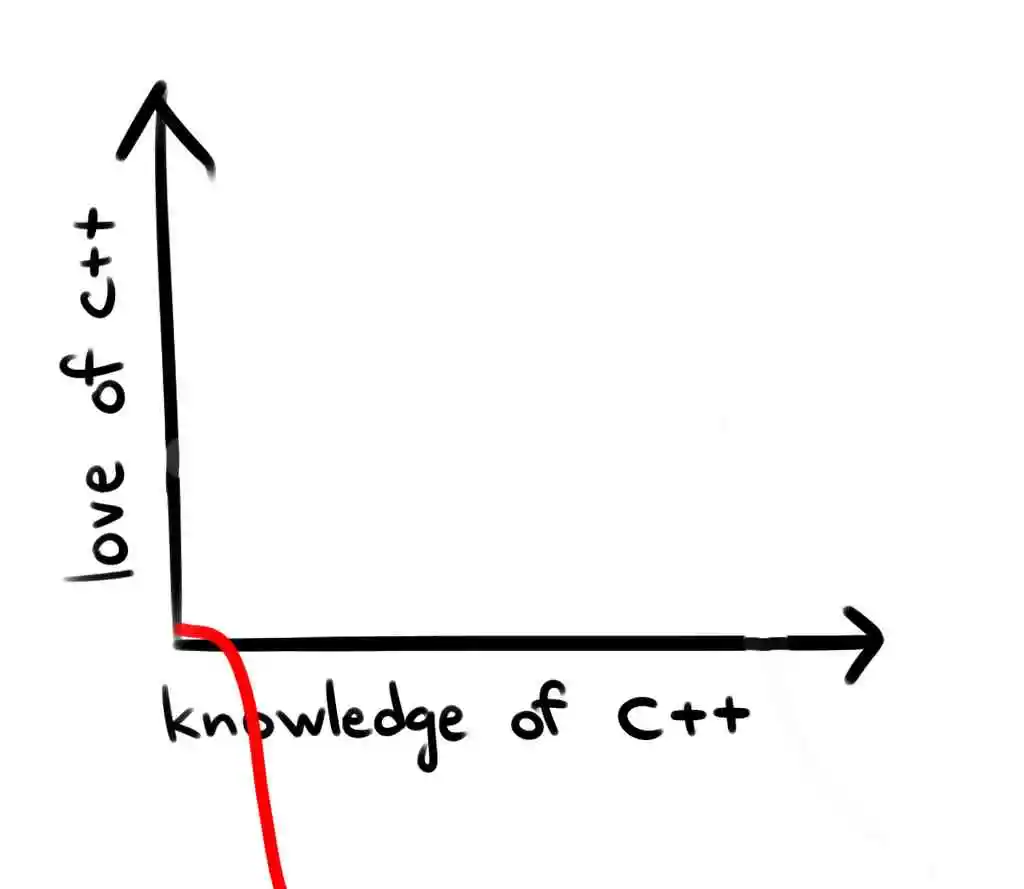this post was submitted on 08 Jun 2024
1073 points (98.6% liked)
Programmer Humor
22929 readers
1077 users here now
Welcome to Programmer Humor!
This is a place where you can post jokes, memes, humor, etc. related to programming!
For sharing awful code theres also Programming Horror.
Rules
- Keep content in english
- No advertisements
- Posts must be related to programming or programmer topics
founded 2 years ago
MODERATORS
you are viewing a single comment's thread
view the rest of the comments
view the rest of the comments

I'm not a fan of C++, but move semantics seem very clearly like a solution to a problem that C invented.
Though to be honest I could live with manual memory management. What I really don't understand is how anyone can bear to use C after rewriting the same monomorphic collection type for the 20th time.
Maybe I'm wrong, but aren't move semantics mostly to aid with smart pointers and move constructors an optimization to avoid copy constructors? Neither of which exist in c.
I'm not sure what collection type you're referring to, but most c programmers would probably agree that polymorphism isn't a good thing.
That's what
std::movedoes, and you're right that it's quite an ugly hack to deal with C++ legacy mistakes that C doesn't have.I say move semantics to refer to the broader concept, which exists to make manual memory management safer and easier to get right. It's also a core feature of Rust.
Also I'm talking about parametric polymorphism, not subtype polymorphism. So I mean things like lists, queues and maps which can be specialised for the element type. That's what I can't imagine living without.
Hahaha. I knew I was wrong about the polymorphism there. You used big words and I'm a grug c programmer =]
We use those generic containers in c as well. Just, that we roll our own.
Move semantics in the general idea of ownership I can see more of a use for.
I would just emphasize that manual memory management really isn't nearly as scary as it's made out to be. So, it's frustrating to see the ridiculous lengths people go to to avoid it at the expense of everything else.
I definitely agree on the last point. Personally I like languages where I can get the compiler to check a lot more of my reasoning, but I still want to be able to use all the memory management techniques that people use in C.
I remember Jonathan Blow did a fairly rambling stream of consciousness talk on his criticisms of Rust, and it was largely written off as "old man yells at clouds", but I tried to make sense of what he was saying and eventually realised he had a lot of good points.
I think it was this one: https://m.youtube.com/watch?v=4t1K66dMhWk
Just watched this. Thank you. I think I'd agree with most of what he says there. I like trying languages, and I did try rust. I didn't like fighting with the compiler, but once I was done fighting the compiler, I was somehow 98% done with the project. It kind of felt like magic in that way. There are lots of great ideas in there, but I didn't stick with it. A little too much for me in the end. One of my favorite parts C is how simple it is. Like you would never be able to show me a line of C I couldn't understand.
That said, I've fallen in love a language called Odin. Odin has a unique take on allocators in general. It actually gives you even more control than C while providing language support for the more basic containers like dynamic arrays and maps.